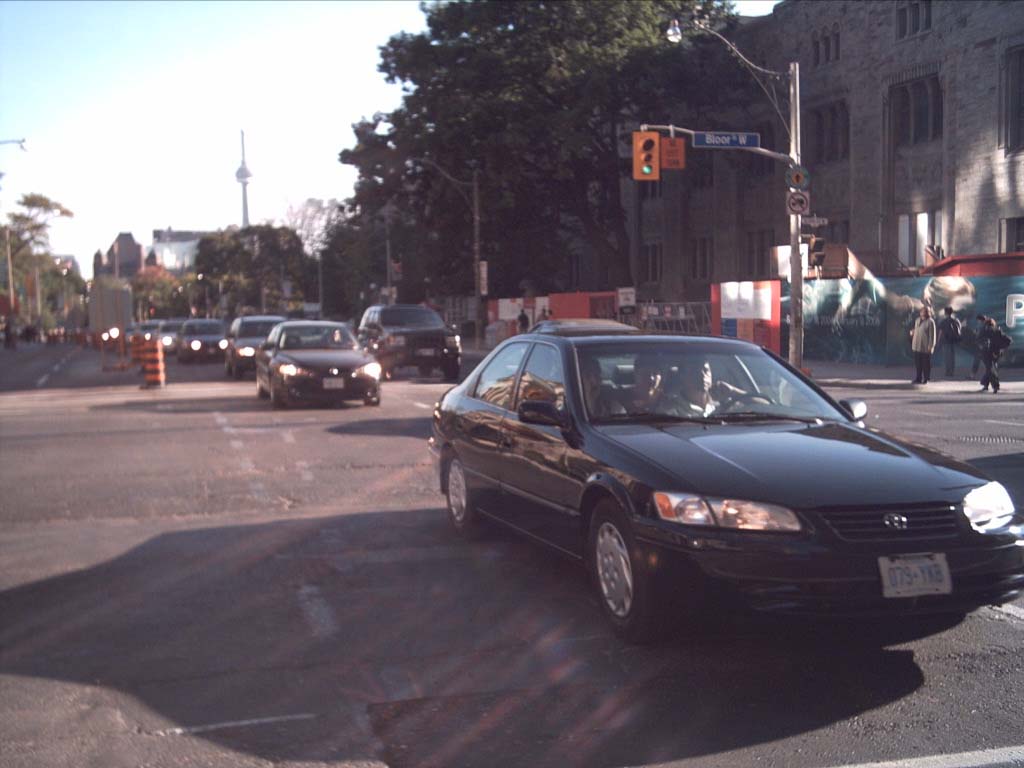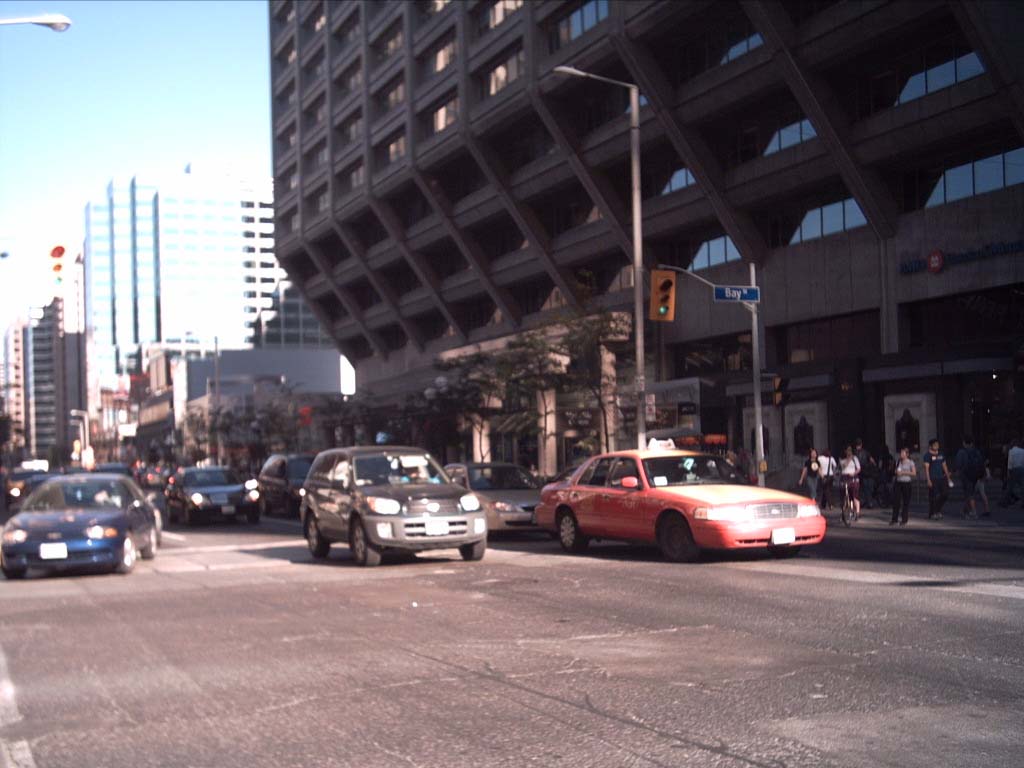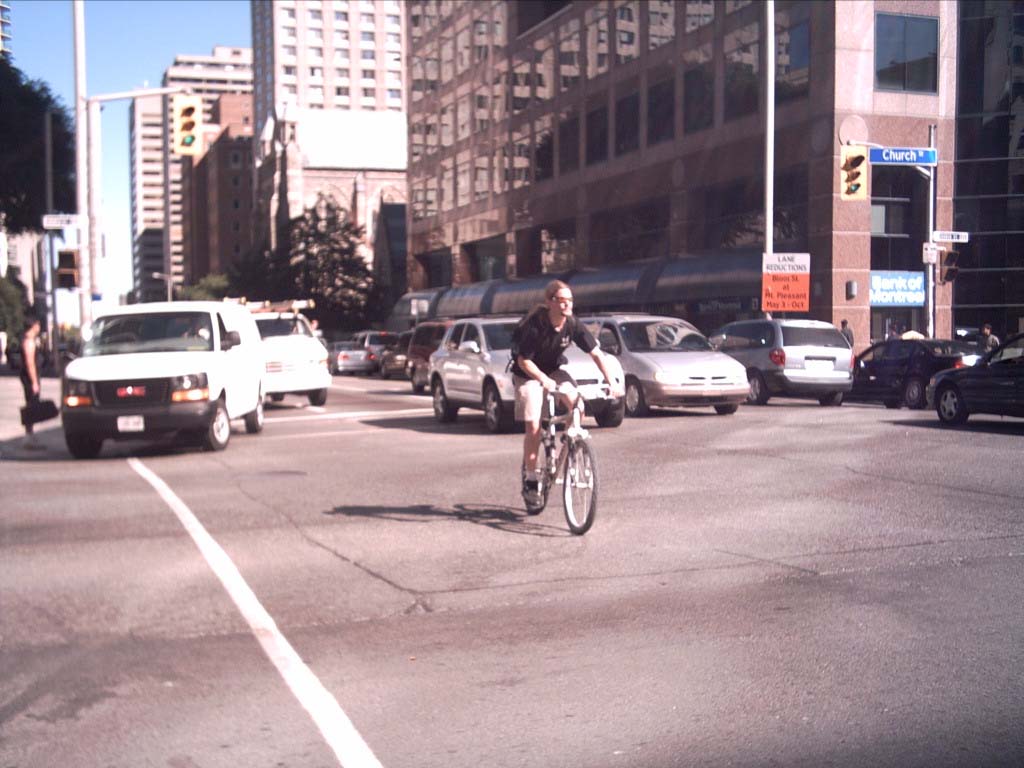Originally, a letter was submitted to the Toronto Budget Committee, on Cyclists’ Rights and Responsible Governance, 29 March 2007, followed by An application for review for new Acts, law, or regulations to the Provincial government, submitted to the Environmental Commissioner of Ontario, Mr. Gord Miller, Mr. Dalton McGuinty, Premier of Ontario, and to Mr. Hugh MacLeod, Associate Deputy Minister, Climate Change Secretariat.
In the absence of appropriate infrastructure in our cities and the consequence of fatalities and injuries in collisions between motorized and non-motorized vehicular traffic, we submit a proposal for legislation for Alternative/Complementary Transportation.
Sustainability and livability in Ontario cities have been drastically compromised due to inconsistency in urban planning and lack of mobility management. The effect has been a disproportionate impact on economics, health, safety, and environmental repercussions.
Both levels of Government have overlooked and undervalued costs and benefits in conventional transport economic evaluation. Transportation imbalance and failure to integrate alternative modes of transportation have contributed to road congestion, healthcare costs, lost productivity, environmental decline.
Thereof, this is to request a review for new Acts, law, or changes to the Provincial Policy Statement under the Planning Act to introduce Provincial Legislation for Alternative Transportation Infrastructure in our cities.
Municipal governments install bicycle lanes on existing and new Municipal roads to constitute a “Cohesive and Integrated Cycling Infrastructure.”
Consistent Cycle-Transit integration with GO, Public Transit, on trains and buses.
This will be in accordance with Places to Grow Act – Ministry of Infrastructure, Move Ontario 2020, to take cars off roads – Ministry of Transportation, and the Provincial Policy Statement – Planning Act – Ministry of Municipal Affairs.
Please note, the following statistics refer to a limited number of extensive reports on socioeconomic benefits of Alternative/Complementary Transportation.
| COSTS | COST-EFFECTIVENESS (BENEFITS) |
|---|---|
| Health Costs Health-related issues resulting from obesity costs the health system in Ontario: $2.2 to $2.5 billion per year. Nationally: $4.3 billion (2005 dollars) Absenteeism Costs Ontario: 1 million work days, 1.5 million physician visits, 6 million restricted activity days, 2.2 million bed days/year. Nationally: Costs Canadian employers $16 billion/year Air Pollution: (2008-31) Healthcare Costs, Ontario $6,490,300 MTO, Transportation (Road) 2010-011, Total Expense: $2,521,96 million 2009-2010: Operating: $1,366.9 million Capital: $932.8 million Estimated cost of auto-transport (Ontario) is over $8 billion per year.Costs on Road Transport include: Congestion reduction, Road costs, parking costs, vehicle costs, traffic collisions, and pollution costs. |
Health Benefits Ontario Investment: 1 mile cycling per individual provides $0.19 in Health Benefits alone. If 25% of Ontario population cycles 1mile/day/year the benefit/cost to Healthcare system will be over $225 Million per year. US: Investment in cycling infrastructure will avert $155 Million in healthcare costs per year in Portland, Oregon. Europe: High rate of Alt/Trans in Denmark, Sweden, Amsterdam have one-third obesity rate of US. Investment in Alt/Trans: Initial investment will yield 4 times the amount of bicycle miles travelled per invested dollar. One bike trip vs. one car trip saves individuals and society $2.73 per mile. A 2-mile bike trip would save $5.56. Cost of a bike-lane can be as little as $5,000/mile.Commercial Benefits: In Quebec bicycle industry generated sales over $181 Million, 2,800 jobs, $17.2 Million in Tax energy Revenue, $13.6 Million in Federal taxes.US: North Carolina invested $6.7 Million in bicycle infrastructure and generated $60 Million in economic benefits through Tourism.Wisconsin generates 20% of bicycle manufacturing in US. The bicycling industry brings in $556 Million and 3,418 jobs to Wisconsin. |
To date, copious subsidies to automobile transportation sector resulted in privatized profits and socialized costs at the expense of equity and sustainability that alternative modes of transportation offer.
In view of the cost-effective and economically rewarding aspects of this proposal, we trust the Government will decisively and advantageously take action to introduce legislation on Alternative Transportation in Ontario.
Yours truly,
Lela Gary




